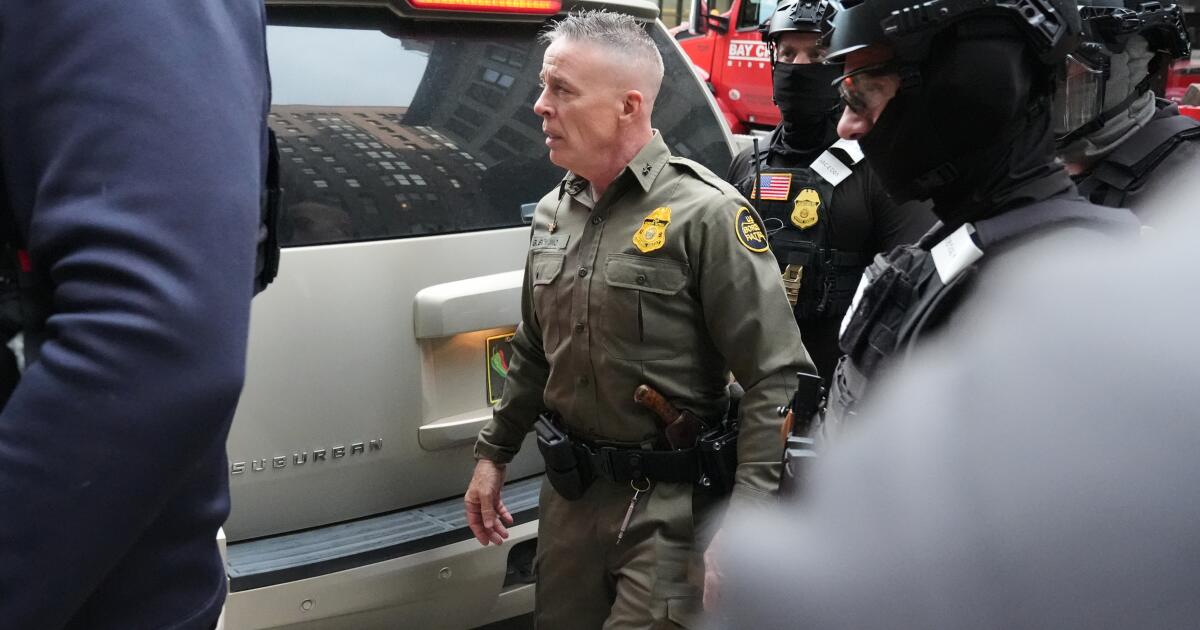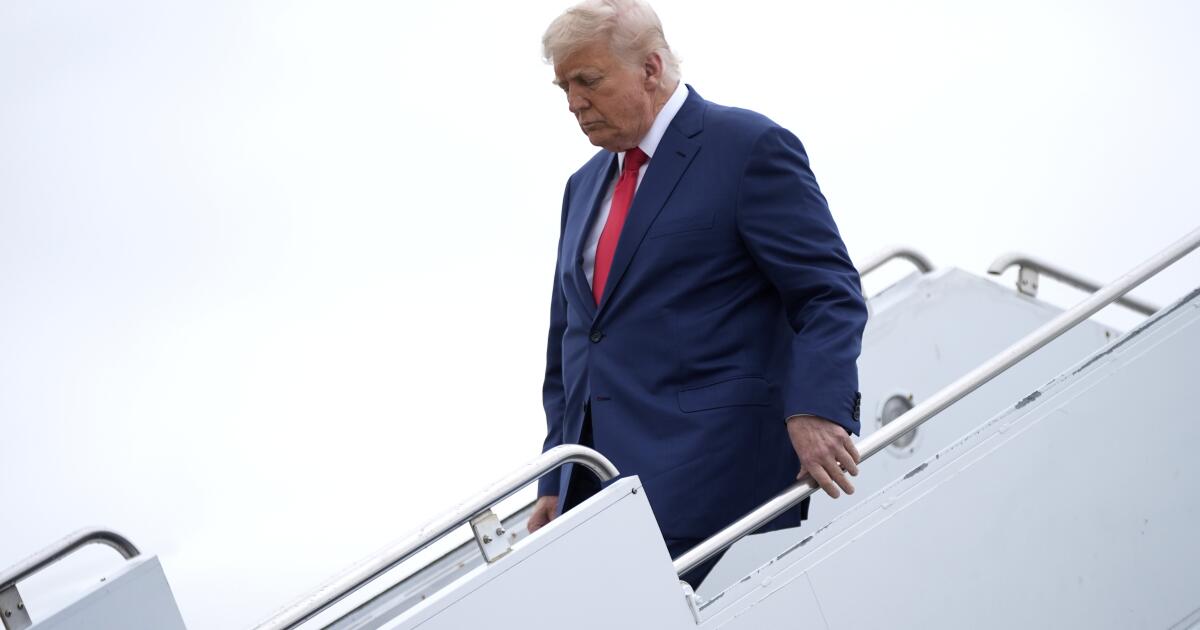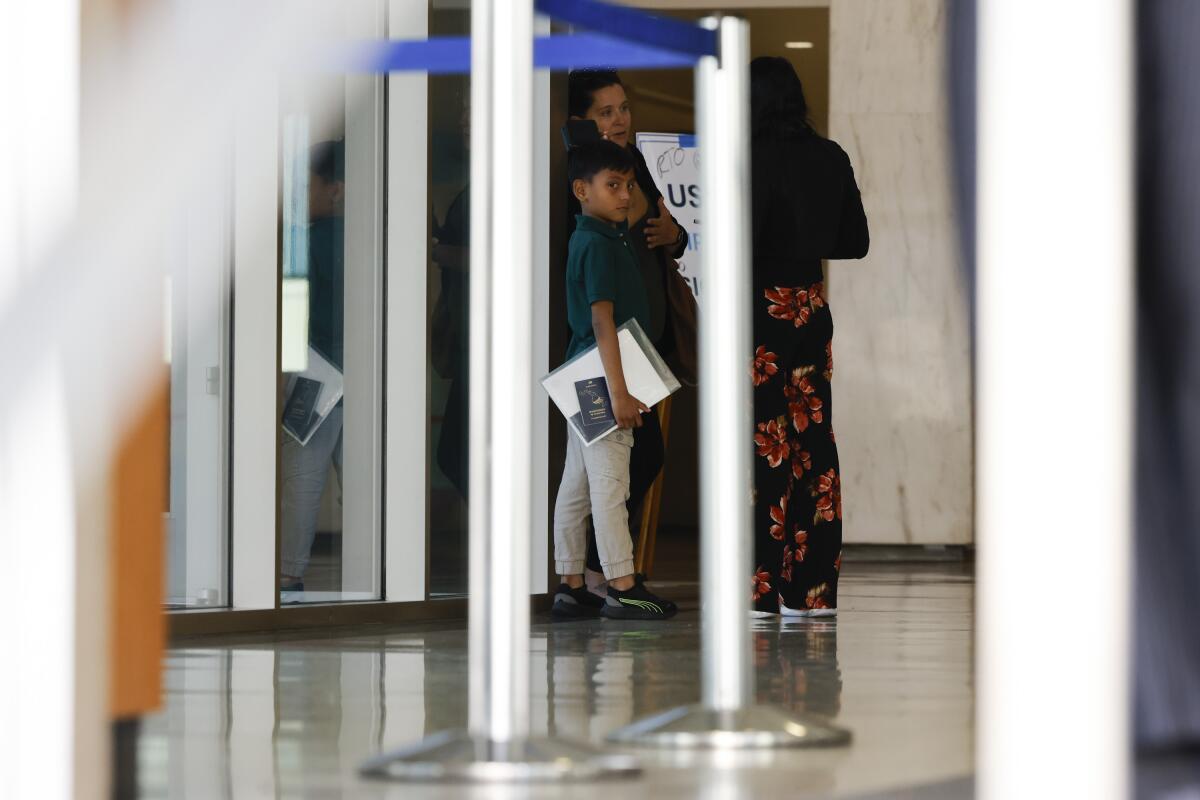Appeals court blocks order requiring Bovino to brief judge on Chicago immigration sweeps
CHICAGO — An appeals court intervened Wednesday and suddenly blocked an order that required a senior Border Patrol official to give unprecedented daily briefings to a judge about immigration sweeps in Chicago.
The one-page suspension by the U.S. 7th Circuit Court of Appeals came before Greg Bovino’s first scheduled, late afternoon meeting with U.S. District Judge Sara Ellis at the courthouse in downtown Chicago.
Ellis had ordered the meetings Tuesday after weeks of tense encounters and increasingly aggressive tactics by government agents working Operation Midway Blitz. It has produced more than 1,800 arrests and complaints of excessive force.
Bovino told Fox News that he was eager to talk to Ellis. But government lawyers, at the same time, were appealing her decision. Lawyers for news outlets and activists who say agents have used too much force, including tear gas, have until 5 p.m. Thursday to respond in the appeals court.
Ellis’ order followed enforcement actions in which tear gas was used, including in a neighborhood where children had gathered for a Halloween parade last weekend on the city’s Northwest Side. Neighbors had joined in the street as someone was arrested.
“Halloween is on Friday,” she said. “I do not want to get violation reports from the plaintiffs that show that agents are out and about on Halloween, where kids are present and tear gas is being deployed.”
Bovino defended agents’ actions.
“If she wants to meet with me every day, then she’s going to see, she’s going to have a very good firsthand look at just how bad things really are on the streets of Chicago,” Bovino told Fox News. “I look forward to meeting with that judge to show her exactly what’s happening and the extreme amount of violence perpetrated against law enforcement here.”
Meanwhile, prosecutors filed charges against Kat Abughazaleh, a Democratic congressional candidate, and five other people over protests at an immigration enforcement building in Broadview, outside Chicago. The indictment, unsealed Wednesday, alleges they illegally blocked an agent’s car on Sept. 26.
Abughazaleh said the prosecution was an “attempt to silence dissent.”
The Chicago court actions came as groups and officials across the country have filed lawsuits aimed at restricting federal deployments of National Guard troops.
President Trump’s administration will remain blocked from deploying troops in the Chicago area until at least the latter half of November, following a U.S. Supreme Court order Wednesday calling on the parties to file additional legal briefs.
The justices indicated they would not act before Nov. 17 on the administration’s emergency appeal to overturn a lower-court ruling that has blocked the troop deployments.
In Portland, Ore., a federal trial seeking to block a troop deployment got underway Wednesday morning with a police commander describing on the witness stand how federal agents at a U.S. Immigration and Customs Enforcement building repeatedly fired tear gas at nonviolent protesters.
In Chicago, Bovino, who is chief of the Border Patrol sector in El Centro, Calif., was to sit for a daily 5:45 p.m. briefing to report how his agents are enforcing the law and whether they are staying within constitutional bounds, Ellis said. The check-ins were to take place until a Nov. 5 hearing.
Ellis also demanded that Bovino produce all use-of-force reports since Sept. 2 from agents involved in Operation Midway Blitz.
The judge expressed confidence Tuesday that the check-ins would prevent excessive use of force in Chicago neighborhoods.
Ellis previously ordered agents to wear badges, and she has banned them from using certain riot control techniques against peaceful protesters and journalists. She subsequently required body cameras after the use of tear gas raised concerns that agents were not following her initial order.
Ellis set a Friday deadline for Bovino to get a camera and to complete training.
Lawyers for the government have repeatedly defended the actions of agents, including those from U.S. Immigration and Customs Enforcement, and told the judge that videos and other portrayals of enforcement actions have been one-sided.
Besides his court appearance, Bovino still must sit for a videotaped Thursday deposition, an interview in private, with lawyers from both sides.
Fernando writes for the Associated Press.


